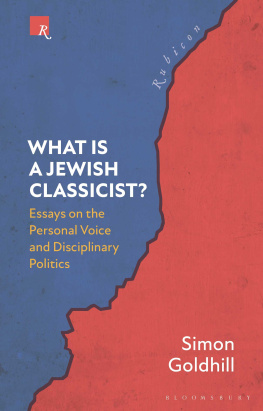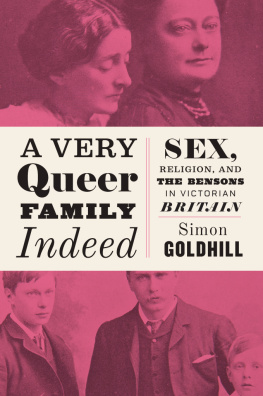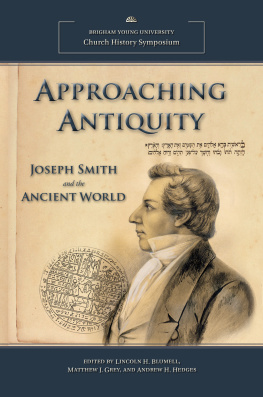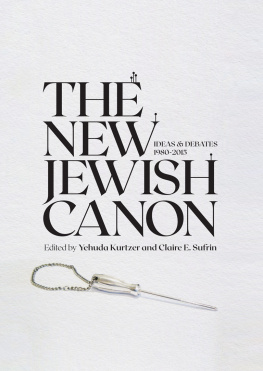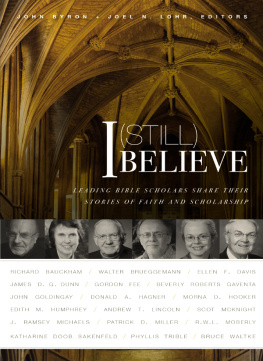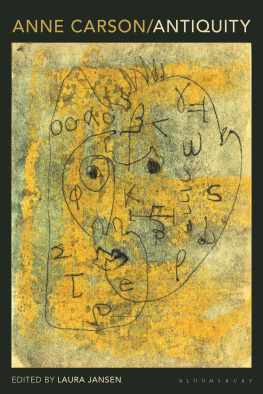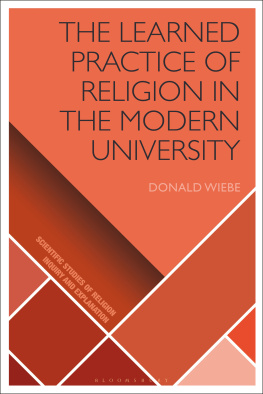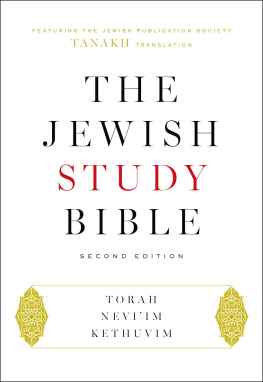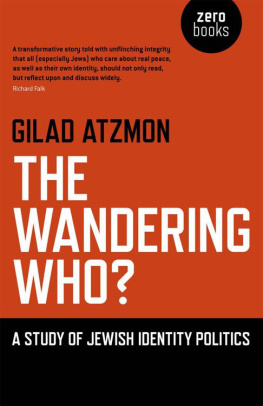
What Is a
Jewish Classicist?
Rubicon
Series editor: Thomas Harrison
This new series seeks to challenge and refresh the study of antiquity: to re-examine central texts and questions, to disrupt stale orthodoxies, to test and problematize the nature and limits of our disciplines, to champion new approaches and to respond to the latest developments in research and in our contemporary world. Rubicon breaks through barriers to open up the history, literature and culture of the ancient world.


Contents

How does the study of antiquity move forward? How does it progress? In one common model, the study of the past is figured as a process of the filling-in of gaps. (This book fills a much-needed gap, Moses Hadas quipped in a well-known rejoinder.) Even if we accept that this is a process without end that our object of study is like a jigsaw puzzle that will always defy completion it is a model that is easily taken for granted. For one thing, it makes easy sense to the wider audiences for academic research. How can you say anything new about that?, I am asked incredulously. In response, talk of new discoveries provides a kind of trump card. But the model of gap-filling is also an easy refuge for scholars of antiquity themselves. With the increased specialisation and compartmentalisation of our areas of study, and the imperatives of research assessment, tenure or promotion, there are ample pressures to find a comfortable niche that you can make your own, and to write footnote-heavy works that few will object to (or read in the first place).Rubicon is founded in an alternative understanding of modern scholarship. Major new papyri, a coin hoard here, an inscription there: these can certainly re-orient our overall picture. Sometimes they can do more, and throw all the pieces of the jigsaw in the air. More often than not, however, change in understanding comes from other directions: from shifts in intellectual fashion, developments in other disciplines, or underlying these from the changed world in which we are operating. Rubicon starts from the position that, as scholars and readers, we are located in our particular times and places, shaped by our individual histories, and that the rules of the game of the study of antiquity far from being timeless and immutable have a history also. It sets out to understand and to interrogate these larger currents that impact on the study of antiquity, to engage with fundamental aspects of antiquity and our relationship with it.Rubicon also sets out to break through the boundaries that too often confine and restrict our approaches: the boundaries between disciplines and scholarly approaches; between time periods; and between areas of study. The series encompasses and moves between the history, literature, languages, art and material culture of the ancient world (and anything else not covered within that list!), and the reception of antiquity in later centuries. It seeks to draw on the insights of other disciplines and fields of study. The volumes in this series also range across the Mediterranean and Near Eastern worlds and further afield. This is not a Classics series, and no people or culture has an assumed primacy. Finally, although all the volumes are informed by a deep expertise, they are not weighed down by it. If the love and knowledge of Greek literature ever die , wrote the Irish Hellenist E. R. Dodds in 1943, they will die of a suffocation arising from its exponents industry. The title of this series, Rubicon, is not quite an invitation to march on Rome, or to dismantle the structures and institutions of our disciplines. It does, however, represent a challenge: to question the assumptions and orthodoxies of our fields; to open up new areas of study, new vistas; and, above all, to take risks.
Thomas Harrison
St Andrews
Every year, Kings College, Cambridge, where I work, holds a dinner for its newly arrived first-year students. It has done so for centuries. As a Fellow, I sit with the new classicists whom I am going to teach for the next three years (or more). It is always a slightly nervy, even febrile occasion, as the new students, in the imposing Hogwarts-esque surroundings, are faced with unfamiliar classmates for the first time, over a dinner more formal than almost everyone is used to lots of glasses and cutlery, a menu, food and wine served by staff and they are all trying out their role as Cambridge students for the first time in Cambridge, in a mixture of performed insouciance, over-excitement and nervous apprehension (or just resistance). One year, the girl sitting next to me, turned and asked why I was not eating meat as she and the others around her were. I might have said that I was a vegetarian easy option, often taken but I replied that I was Jewish and ate only kosher meat. Oh, she said, surprised, I didnt know you could be Jewish and English.
She had, she went on, actually never met a Jew. Now, this scenario may seem just flabbergasting, if not ridiculous, or strike you as a sign of desperate parochialism (all too English?). But this girl turned out to be a very accomplished young woman, indeed, who graduated in classics with a double first, the very highest possible degree, and then quickly retrained in science and qualified as a medical doctor, again with the highest possible grades. You could see her comment as no more than a nervous blurt (her filters were never that strong). It certainly didnt stop us from having productive and supportive interactions in and out of class over the next ten years. But her comment completely threw me and consequently stuck in my mind. How, I asked myself, could you grow up in the south of England and never meet a Jew?; How could you think Jewishness was incompatible with Englishness? If you come from New York, as my wife does, it was an even more baffling scenario, though she, too, could turn it happily into a sniffy exiles gibe about The Brits.
The exchange did leave the student and me both looking oddly at each other, as we tried to make sense of our mutual surprise. But it actually led to a far more interesting discussion than the usual conversations on such a potentially awkward occasion: I probed about her home life; she asked why and how I was a Jew. I had something to report when I went home later. The conversation also captured one of the strange dynamics of working in a university. For the girl, this was one step in the transformative time of being a student: not just learning a subject, but also learning who you want to be, and who others are people outside your familiar and familial circles. For me, teacher, academic, who was going to spend an hour or more every week of term over the next few years with her, it was also a first step in participating in such an educational process. But the exchange was also discomforting for me, because at the very time I was meant to be welcoming the student into the community, I was being asked to face my own alterity in her eyes. The dialogue was, I suppose, a tiny, shared drama about fitting in.
The statement, I didnt know you could be Jewish and English, however parochially naive it may sound at first, could easily be translated into a familiar, motivated political hostility, and not just in England, of course. When John Kennedy ran for President of the United States of America, his opponents played up what they declared to be his dual and thus fractured loyalty as a Roman Catholic. Would the Pope be giving him instructions on policy? The same rhetoric was not used against Joe Biden only because other hostile suggestions of conflicted loyalties were mobilized and the toxic connection between politics and religion had moved to other battlegrounds. Every immigrant who raises a challenging question about his new host country has heard the sneering rejoinder, If you dont like it here, go home, as if the place that has been fled, that other place, must be the real home of a stranger. The English politician, Norman Tebbit, became a byword for this sneering racism within the Conservative Party when he accused British Asians of not being sufficiently integrated if they supported the Indian or Pakistani cricket team: you could not be properly English, it seems, unless you cheered loudly for the home team. The so-called Tebbit Test was designed to fail and thus stigmatize immigrants and their descendants: to make their unreliability visible. Jeremy Corbyn, with a cloth-ear for his own prejudice, reckoned Jews, however long they had been in the country, did not get English irony. The politics of identity has all too often rested on this sort of demand for purity: a single, simple label, which identifies and excludes, rhetorically, institutionally, aggressively.
Next page
